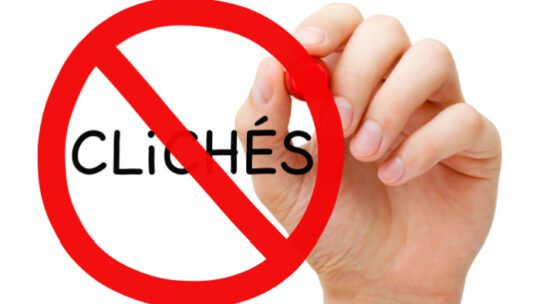
Clichés used to be thought of as witty. However, some cliches and sayings, like any trend, get old, and are no longer culturally appropriate to use in your writing.
Most writers experience days of writer’s block. Some days the words just do not flow, and so we take the easy way out and throw in a cliché. Readers can see clichés as lazy writing, and writers seldom disagree.
However, clichés can mean more than lazy writing; in some cases, they can be downright offensive. What may have been acceptable in 1950 may not have the same meaning today.
Most writers using these clichés are not intending to be offensive. For example, someone using the phrase “falls on deaf ears” may never have experienced hearing loss or known someone in the deaf community.
PRNEWS decided to highlight phrases to avoid or consider erasing from your vocabulary. This is the first of a series. If you have additional phrases you'd like to see us discuss, please email [email protected] or [email protected].
Instead of …
Forgotten stepchild
Try this…
- less-favored
- outcast or cast out
- mistreated
- neglected
Before The Brady Bunch, society looked down on divorce and blended families. Nowadays, 40 to 50 percent of marriages end in divorce, and children usually get caught up in that. Many people become happily remarried and build stronger families, with many stepchildren getting along just fine with their step-parent and step-siblings. However, for others, divorce remains a traumatic memory. When writers use this phrase, it exhibits a negative connotation, depicting something or someone neglected or not wanted. Utilizing this phrase is bound to impact someone on either side of the fence who may not want to look at stepchildren in this way.
Instead of…
Caught with your pants down
Try this…
- caught in the act
- embarrassed
- ashamed
- played a fool; made a fool out of
Oh, so much to say about this one. How about—it’s just creepy. It’s uncomfortable. And getting caught with your pants down in public is a crime—with multiple offenses considered a felony. Way too much unintended innuendo and interpretation can be assessed. And you never know people’s backgrounds. They could be suffering from sexual trauma, assault or abuse. Better to keep the pants up in this situation.
Instead of…
Turn a blind eye
Try this…
- forget
- disregard
- overlook
- pay no attention to
- look the other way
- condone
- indifferent
This phrase takes being blind and turns it into something negative. It disrespects those with a visual impairment, describing blindness as ignorant or lacking knowledge. Using this phrase allows for ableist language, and fails to use empathy for those with the condition.
Instead of…
Falling on deaf ears
Try this…
- ignoring
- choosing not to engage
- disregarded
Sara Novic, author of the bestselling novel, “True Biz,” identifies as deaf, and wrote about how ingrained expressions have damaging effects on people for BBC.com.
“For disabled people like me, these common words can be micro-assaults. For instance, “falling on deaf ears” provides evidence that most people associate deafness with willful ignorance (even if they consciously may not).”
Not only can this be demeaning and ableist to people who are deaf, it can inaccurately describe the deaf experience.
Instead of…
Losing his/her/their mind(s)
Try…
- To lose touch
- To become confused
- Frustrated
- Acting out
- Stressed out
- To suffer a mental breakdown
- Becoming foolish
According to the National Institute of Mental Health, nearly one in five U.S. adults has a mental illness. That translates to millions of people. So using terms like “going crazy,” or “psycho” are bound to offend some 20 percent of the population. And more than likely, someone is using this as an idiom for someone having a really bad (or really good) day, or someone who may be just overly frustrated or excited about something. There are better ways to describe someone’s situation, with context, than “losing their mind.”
Nicole Schuman is senior editor for PRNEWS. Follow her @buffalogal
